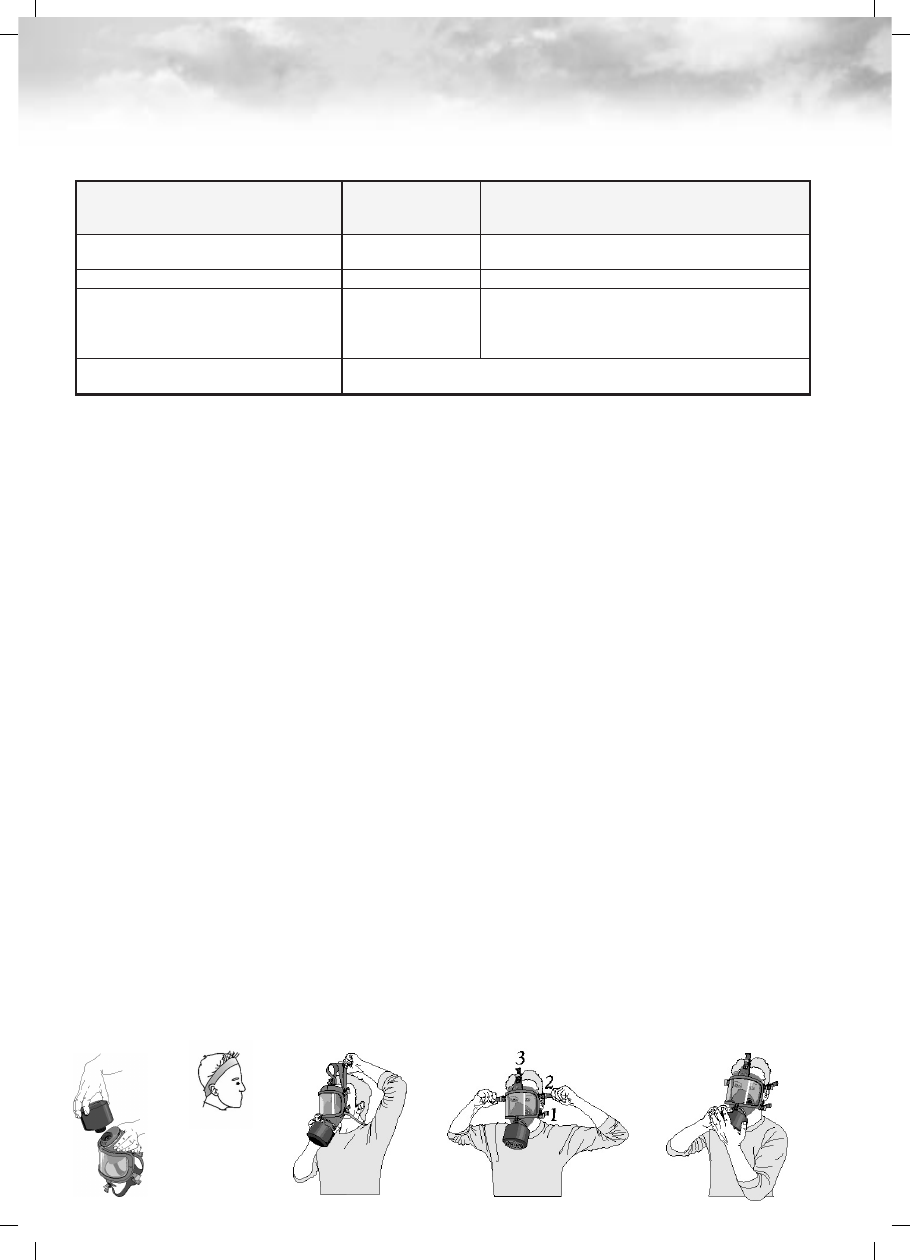
2
3. Selection of breathing protector equipped with filter – Applies to NON-USA users
Type of protective device Multiples of
threshold
concentration
Remarks, limitations
Full face mask with particle filter P2 15 Particles, excluding radioactive substances,
bacteria, fungi, viruses and enzymes
Full face mask with particle filter P3 400 Particles
Full face mask with gas filter *) 400 Filter types A, B, E, K, AX, SX, Hg-P3 and NO-
P3 have different applications. For more
information, see User Instructions of SEA
threaded filters.
Full face mask with combined filter The specified multiples of threshold value for the gas or particle
filters are given separately, but in all cases the lowest value applies
*) Provided that the maximum permissible detrimental gas concentration for the gas filter is not exceeded. For
non-powered filtering devices with gas filter, concentration must not exceed 0.1 vol.% in gas filter class 1 and 0.5
vol.% in gas filter class 2 and 1.0 vol.% in gas filter class 3.
4. Preparations for use, and Donning
4.1 Before use, check the following:
• facepiece condition and intactness
• intactness of rubber parts
• head harness condition and elasticity
• visor condition and cleanliness
• that speech diaphragm is in place
• that exhalation valve is in place and exh. valve cover is properly fastened
• that inh. and exh. valves function properly
• that the filter is correct for the intended use. Filter type and class are evident from the marking.
• storage period of the filter.
4.2 Screw the filter tightly in the connector of the mask (=inhalation valve body) (fig. 1).
4.3 When needed, connect the spectacles to the inner mask and adjust their position (see instructions
provided with the spectacle frame).
4.4 Loosen the head harness.
4.5 A sweat band is recommended to control excessive hair (fig. 2).
4.6 Don the facepiece by placing first the jaw end on your face, then pull the head harness over the
head (fig. 3).
4.7 Adjust the head harness evenly (straps in the order 1-2-3) so that the cradle lies centered on the
back of the head (fig. 4).
4.8 Check the tightness of the mask by closing the exhalation opening with your hand. Exhale to
create overpressure. If you fail to get overpressure (=potential leakage), tighten the head harness and
the filter. Alternatively, close the filter opening and inhale to make the mask press onto your face (fig.
5).
4.9 After use the mask must be maintained as instructed in the Service Table.
Fig. 1 Fig. 2 Fig. 3 Fig. 4 Fig. 5














